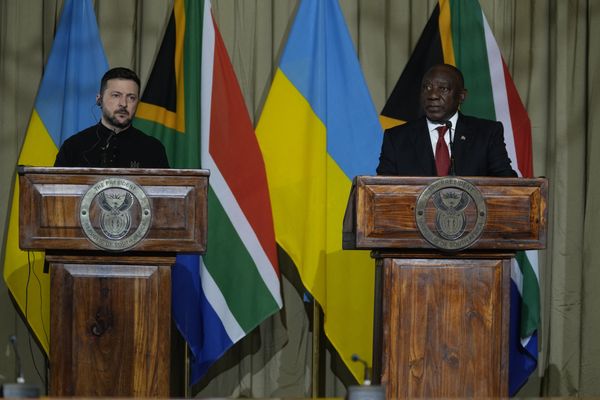
Doctors are “gatekeeping” conversations surrounding affordable access to healthcare, leaving nurses and their highly specialised skills undervalued and underutilised, peak nursing bodies say.
The cost of access to basic healthcare is a pressing problem for many Australians, with an increasing number of general practitioners limiting access to bulk billing or scrapping it altogether.
The Royal Australian College of General Practitioners and the Australian Medical Association say extended freezes to the Medicare rebate, and a below-inflation 1.6% increase for most GP services from 1 July means it is unfeasible for GPs to continue to bulk bill.
Doctors want the federal government to significantly increase the rebate, and to do more to attract medical graduates to general practice.
But the president of the Australian College of Nursing Practitioners, Leanne Bose, said not enough was being done by government to increase the role of nurses in providing affordable primary healthcare.
In New Zealand nurse practitioners, like general practitioners, can assess and treat patients, and provide prescriptions. In the US patients are encouraged to see nurse practitioners for many common illnesses and long-term conditions, and can often get appointments more quickly and affordably than with a GP.
A nurse practitioner is a registered nurse with additional training to diagnose and treat people with acute or chronic health conditions.
“Internationally, nurse practitioners are valued as highly intelligent, flexible and critical thinkers, and they can step up and provide the services the most vulnerable people need,” Bose said.
In Australia, Bose said, the Medicare item numbers and rebates available to nurse practitioners were inadequate, limiting their scope to provide affordable care. While patients don’t need a referral to see a nurse practitioner, doctor approval is needed for the patient to receive a Medicare rebate for the consultation, so most patients have to pay.
Nurse practitioners also require authorisation from a doctor to issue subsidised prescriptions.
“Requiring authorisation has nothing to do with our expertise or training, and everything to do with controlling the healthcare dollar,” Bose said.
“We don’t fully utilise the nurse practitioners we do have by allowing them to provide healthcare, especially to vulnerable people, and it is absolutely abhorrent.”
The strengthening Medicare taskforce announced by the federal government to examine ways to make healthcare more accessible and affordable does not have any nurse practitioners on its expert panel.
While the Australian Primary Health Care Nurses Association and Australian Nursing and Midwifery Federation are represented, the chair of the Australian College of Nursing’s faculty of advanced practice, Christopher O’Donnell, said nurse practitioners needed representation.
“Nurse practitioners have been locked out of this review, just like the previous one, because we represent a threat to the back pockets of GPs,” he said.
He questioned comments from the AMA and RACGP that it is unaffordable for GPs to bulk-bill.
According to the staffing agency Medical Recruitment: “Based on a salary survey … a full-time general practitioner on average earns between $200,000 and $350,000 per annum. But salaries vary depending on location, demographics of the area, the size of the clinic, whether the GP owns the clinic, hours worked, the types of services and number of services per hour offered, and other factors including the proportion of patients who are bulk billed.”
O’Donnell said bulk billing “can make you a very nice wage”.
“Powerful medical lobby groups have a stranglehold on healthcare funding and are holding the Australian public, and their health, to ransom.”
But the RACGP president, Adj Prof Karen Price, said many practices were struggling bulk-billing patients “and they have no choice but to shift to mixed or private billing”. The cost of equipment, facilities and Covid-19 measures added to financial stress, she said.
“I don’t see any benefit in buying into a divisive and unhelpful doctors-v-nurses narrative,” Price said. “We are all healthcare workers interested in the same thing – ensuring our patients can get the best possible care when they need it.”
The federal secretary of the Australian Nursing and Midwifery Federation, Annie Butler, said GP rebates had not kept pace with inflation and “probably” needed to increase.
“But we also need to reform how we fund other activities and health services, and start to incentivise excellent chronic-disease management including that coming from nurses,” she said. “But GPs are the gatekeepers at every single point. We need to shift that.”
Mary Chiarella, professor emerita with the University of Sydney’s Susan Wakil school of nursing and midwifery, said rather than paying GPs high salaries to attract them to rural and remote areas, registered nurses in those areas could be upskilled to become nurse practitioners.
But she said those nurses had to be provided with appropriate access to Medicare Benefits Schedule provider numbers and other forms of funding. She agreed with concerns that affordable healthcare reviews did not include nurse practitioners.







